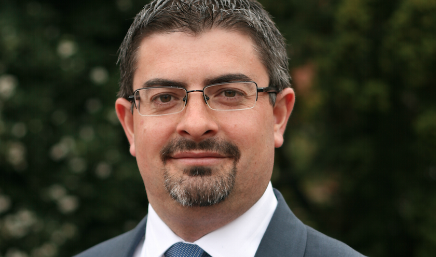Halcyon Trustees is launching as the first consultancy dedicated to supporting corporate healthcare trusts.
The organisation is led by managing director John Dean and consulting director Elliott Hurst who together have more than 60 years’ experience in senior leadership roles in the UK healthcare benefits sector.
The pair said the firm’s overriding objective was to improve governance standards and beneficiary outcomes for employers and the membership they protect, particularly given the heightened awareness and demands on employer healthcare offerings.
The consultancy’s offering will include trustee services, sitting on health trust boards and assuming legal responsibility where appropriate, and providing training and other consulting support.
Independent trustees are common in the corporate pensions sector but are very rare in corporate healthcare arrangements.
Dean told Health & Protection that he believed this launch could be a trigger for employers to start acting similarly to their pension arrangements and outsourcing responsibility and liability.
“If people become trustees of a corporate healthcare trust they are legally liable under the trustee act,” he said.
“Even when it’s done as a company, if something goes wrong they can all individually be sued. So I believe firms may use us as sole trustees instead.”
Mis-selling and governance standards
The consultants believe stricter oversight is required in the healthcare area citing concerns around potential mis-selling and governance standards.
They noted that healthcare trusts have sometimes been sold as medical insurance without the tax, “which is simply wrong”.
“For example, in a healthcare trust, trustees have responsibilities in respect of governance, documentation and rate setting,” the firm said.
“In addition, trustees are responsible for handling beneficiary complaints known as trustee referrals. These are all services provided by insurers within traditional insurance products which are now the responsibility of trustees.”
They also noted that many staff in the sector have very limited understanding of trusts, trust law and what good trust governance look like.
And the firm is aiming to improve standards as it warned that while healthcare trusts do not have the level of regulation of pension benefits, any potential thematic review from the regulator could impose much stricter rules than present.
Eye-opening experience of poor governance
Hurst (pictured) noted that the role and scope of healthcare benefits employers offer was perhaps of greater significance than at any time in recent history and operating plans within strong governance frameworks was therefore vital.
He highlighted several risks, issues and concerns that were discovered across the sector during pre-launch research.
“It has been quite an eye-opening experience for us both to see that so many arrangements in place have such poor governance and risk management standards,” Hurst continued.
“These poor standards could reflect badly on both the employer and the trustees, and, ultimately, may well detract from the benefits that employers offer to their people.”
Hurst noted these poor practices included:
- Trust deeds – there were examples of deeds not being correctly executed, being lost, and not updated to reflect arrangements in place. This poor governance falls at the feet of the trustees who are not only failing in their legal duties but leaves them open and vulnerable to challenge by disgruntled beneficiaries.
- Trustee training – many healthcare trustees admit to having little or no training whatsoever to help them understand their role and substantial responsibilities.
- Documentation and governance – many trustees are not keeping proper records for the trust they are responsible for and in some cases not following the five key HMRC guidelines. This could lead to substantial fines to the employer, as well as reputational damage.
- Independent trustees – very few healthcare trusts have balanced strong trustee boards with independent specialist healthcare trustees appointed who help with balance and expert knowledge. Many trustees are fundamentally conflicted in also, typically speaking, being not only beneficiaries of the healthcare trust, but, also, possibly, by their role and responsibilities within the sponsoring employer.
Dean concluded: “We have observed the evolution and development of the pension market and improvements in governance and member engagement following the Maxwell and Mirror Group Pension Scheme scandal.
“We feel the unregulated healthcare trust marketplace should focus on improving governance standards now to protect beneficiaries and employers before we see any movement by authorities to impose a costly regulatory framework on this marketplace.”






